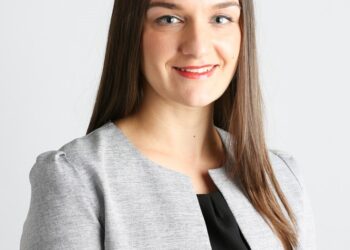The matter of Dawson v Dawson [2019] NSWSC 826 involved an SMSF, the Dawson Superannuation Fund, which was established in 2005 by Peter Dawson and his wife, Estelle Dawson, the first defendant, who were the members and trustees of the fund.
Prior to Peter Dawson’s death, his son, Tony Dawson, the plaintiff, was appointed a trustee of the fund in Peter Dawson’s place. At the time, the plaintiff was his father’s financial manager and guardian and held his power of attorney. The plaintiff is the son of Peter Dawson and his previous partner, Doreen Cochrane.
Peter Dawson died on 24 November 2015. Some years later, the first defendant, Ms Dawson, and the executor of Peter Dawson’s estate, George Holland, the second defendant, signed a deed of confirmation in relation to the fund dated 6 April 2018 which purported to ratify the appointment of Mr Holland as a trustee of the fund to replace the plaintiff, with retrospective effect from the date of Peter Dawson’s death. Mr Holland is the son-in-law of the first defendant.
The plaintiff, Tony Dawson, disputed the appointment of the second defendant and commenced proceedings seeking declarations that he and the first defendant remained a trustee after his father’s death and that the second defendant was not a trustee of the fund.
He also sought an injunction restraining the first defendant from taking any further action in relation to the plaintiff’s status as trustee of the fund, and an order for the provision and delivery of records and accounts of the fund.
While the defendants agreed that the plaintiff was validly appointed as a trustee of the fund on 17 March 2014, they contended that his appointment ended on the death of Peter Dawson and that the second defendant’s appointment was valid and necessary due to the trustee requirements for an SMSF with two members under the SIS Act.
The court had to decide what impact Peter Dawson’s death and the consequent termination of the enduring power of attorney had on the plaintiff’s status as trustee of the fund, and whether the second defendant had been validly appointed as a trustee of the fund in lieu of the plaintiff.
Justice Trish Henry determined that the plaintiff was appointed as trustee of the fund in his personal capacity, not as attorney or agent for Peter Dawson, and that his appointment did not cease upon Peter Dawson’s death when the power of attorney terminated.
Justice Henry stated that the law recognises that the appointment of a trustee is personal in nature.
“When a legal personal representative, such as a person holding a power of attorney, is appointed a trustee of an SMSF, they act in their personal capacity as trustee pursuant to their appointment as trustee rather than as an attorney or agent for the member,” she said.
“This means that a trustee of an SMSF, once appointed, may be personally liable for any breaches of trust and may be subject to civil and criminal penalties for breaches of duties.”
She also noted that the terms of the fund deed also indicated that the plaintiff had been appointed in his personal capacity.
“[The terms of the trust deed] do not limit the plaintiff’s appointment as trustee in any way, nor do they indicate that his appointment ended when Peter Dawson died and the enduring power of attorney terminated,” she stated.
“A trustee appointment under clause 6.1(d) of the fund deed is not expressed to be limited to the new trustee acting as attorney of the trustee who became of unsound mind, nor is it expressed to cease upon the death of that person or some other point in time. It provides for an appointment of a new trustee to fill a vacancy created because the previous trustee no longer is capable of holding that office.”
In regard to whether the second defendant was appointed as trustee, Justice Henry said the only clauses of the fund deed under which a trustee could be appointed were 6.1(c), which provided that a trustee could appoint an additional or substitute trustee, and clause 6.1(d), which provided for an appointment of another natural person as trustee where the office of trustee becomes vacant because a trustee dies or becomes of unsound mind.
To be a valid appointment as a substitute trustee under the deed, the second defendant’s appointment had to be made by the trustee of the fund who, at the time, were the first defendant and the plaintiff, she stated.
“As one of two trustees, the first defendant did not have the power to appoint, or ratify the prior appointment of, the second defendant as a substitute trustee under clause 6.1(b) of the fund deed unilaterally and without the consent of the plaintiff,” she said.
She determined that the second defendant was therefore not a trustee of the fund.



Though i don’t know that such a clause will have been effective, as the Justice stated the plaintiff’s appointment as trustee was in a personal capacity and not due to his holding a power of attorney.
Once again, as with ALL SMSF cases the Courts head to the deed to look for process. Section 55(1) of SISA 93 requires the deed to be followed in all cases (except limited instances where SISA overrides the deed). I can’t believe that the lawyers writing the deed did not think of including a clause to remove a replacement trustee (EPOA) on the death of the member.